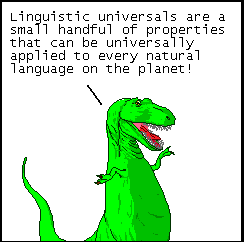Today’s Pictures for Sad Children asks: what do you do when you no longer believe in your family’s religious tradition?
Oh, go on. You know what they say: It doesn’t matter what you believe, as long as you believe in something.
Today’s Pictures for Sad Children asks: what do you do when you no longer believe in your family’s religious tradition?
Oh, go on. You know what they say: It doesn’t matter what you believe, as long as you believe in something.
Word It Out offers a way to make frequency-based word clouds based on word lists or web pages. And they’re using the Daniel font, so you can see your text in my handwriting.
Here’s a word cloud based the words appearing on Good Reason as of yesterday.
"Good Reason"
Click on the link above to see this word cloud at WordItOut. You may also view it on this website if you enable javascript (see your web browser settings).
Word cloud made with WordItOut
Gee, I blog about religion a lot, don’t I?
My typefaces keep popping up.
Yataghan is still popular in the fantasy genre. I’ve just noticed that it’s been used for the UK editions of the Treason’s Heir series.
You can download Yataghan here.
And the Daniel font keeps going. It makes an appearance on a book jacket — The Jeremy – Snaps of the Dragon by Jo S. Wun. Click on the link above the main image to see the back of the jacket — that’s where the text is.
And Daniel Black is everywhere on the CanHaveGifts website. No, I mean, it’s all over the site — they’ve used CSS3 to include it as actual text, not graphics. Have a look!
You can download the Daniel font here.
By now, everyone must have seen ‘No Country for Old Men’. I’ve only just watched it now — I don’t often have the chance to sit and watch a movie. It’s one of those that keeps coming back to you days later.
The key ingredient in the film is the antagonist Anton Chigurh, a remorseless killer with a Prince Valiant hairdo and an air tank. He’s as omniscient as the next psychotic villain, but he’s not invulnerable; Moss, his quarry, can injure him, and you wonder if that means Moss will be able to turn the tables. Even so, Chigurh has a formidable willingness to dispatch you for the sake of getting your car and continuing his pitiless and emotionless pursuit of Moss, as well as anyone else who crosses his path or even looks at him.
One of the most memorable scenes is the ‘coin toss’, which appears early in the film. It’s a model of how to write film dialogue. At the counter of a gas station, the Proprietor bumbles onto Chigurh’s bad side with a casual question about where he’s come from, and Chigurh won’t let it go. He draws the Proprietor deeper into the conversation and thus deeper into trouble.
Watch:
Unlike the dialogues I study, it’s a fictional conversation, but it lends itself really well to analysis. Two items in my bag of tricks are Conversational Analysis (CA) as elucidated by Sacks, Schegloff, and Jefferson, and game theory, especially Bill Mann’s Dialogue Macrogame Theory (or DMT). CA is concerned with the mechanics of dialogue, particularly the back-and-forth of its parts. Game theory, as I’m using it here, refers to the way people make ‘bids’ to take the dialogue in this or that direction.
From the top:
CHIGURH
How much?PROPRIETOR
Sixty-nine cent.CHIGURH
And the gas.
So far, all standard. Chigurh initiates the dialogue with a question, the proprietor answers. This is known as an adjacency pair. We use adjacency pairs habitually; questions lead naturally to answers, comments lead to acknowledgements. It’s the unconscious nature of adjacency pairs that will draw the Proprietor into this tense and dangerous exchange.
PROPRIETOR
Y’all getting any rain up your way?CHIGURH
What way would that be?
The Proprietor innocently starts a question-answer adjacency pair. But it’s not a question Chighur likes, so he doesn’t answer it. Instead, he takes control by asking a clarification question of his own.
PROPRIETOR
I seen you was from Dallas.CHIGURH
What business is it of yours where I’m from, friendo?
Uh-oh. Someone has noticed Chigurh’s point of origin, and could rat him out. The Proprietor’s original question is still hanging, unresolved.
PROPRIETOR
I didn’t mean nothin’ by it.CHIGURH
Didn’t mean nothin.
The Proprietor attempts to repair this situation, but Chigurh won’t have it.
PROPRIETOR
I was just passin’ the time.
If you don’t wanna accept that I don’t know what else I can do for you.
The Proprietor is trying to preclude any further repair attempts. Then:
PROPRIETOR
…Will there be somethin’ else?CHIGURH
I don’t know. Will there?
People don’t like to close a dialogue down too abruptly, so most dialogues have a ‘pre-closing’ stage, just to make sure nobody has anything else to say. Here, the Proprietor makes a bid to ‘pre-close’ (wouldn’t you?), but instead of meeting the bid with a yes-no answer, Chigurh thwarts the bid with another question. Which the Proprietor needs to address.
PROPRIETOR
Is somethin’ wrong?CHIGURH
With what?
You give a question, you expect an answer, but Chigurh isn’t cooperating.
PROPRIETOR
With anything?CHIGURH
Is that what you’re asking me? Is there something wrong with anything?
Chiguhr does it again — he’s not letting the Proprietor take the ‘initiative’ — the first step — anywhere, he’s not resolving any of these adjacency pairs, and he’s using another question to push the dialogue down one more layer. We’re three levels down in this dialogue, which is about as much as people are good at handling. Any deeper and the Proprietor will be lost. So it’s another attempt at pre-closing:
PROPRIETOR
Will there be anything else?CHIGURH
You already asked me that.
Chigurh gives not another question, but a hostile meta-comment on the dialogue. The Proprietor only has one way out: make a bid to terminate the dialogue proper.
PROPRIETOR
Well…I need to see about closin.CHIGURH
See about closing.PROPRIETOR
Yessir.
Bid rejected, using an acknowledgement. Now Chigurh takes control, issuing question after obliquely threatening question.
CHIGURH
What time do you close?PROPRIETOR
Now. We close now.
A question-answer pair, but Chigurh’s not happy with it. He will decide the level of specificity required.
CHIGURH
Now is not a time. What time do you close.PROPRIETOR
Generally around dark. At dark.
At last, something resembling a completed adjacency pair. But Chigurh isn’t content to let it rest:
CHIGURH
You don’t know what you’re talking about, do you?PROPRIETOR
Sir?CHIGURH
I said you don’t know what you’re talking about.
The Proprietor no longer knows how to play this. He lets Chigurh take all the initiative.
CHIGURH
What time do you go to bed?PROPRIETOR
Sir?CHIGURH
You’re a bit deaf, aren’t you? I said what time do you go to bed.PROPRIETOR
Well…Somewhere around nine-thirty. I’d say around nine-thirty.CHIGURH
I could come back then.
You don’t want this guy to come back when you’re in bed.
PROPRIETOR
Why would you be comin’ back? We’ll be closed.CHIGURH
You said that.
It’s the first time in a while that the Proprietor has taken the initiative in this dialogue, but Chigurh shuts him down with another meta-comment about the dialogue itself. Now the Proprietor makes another bid to terminate the dialogue, but Chigurh quashes it with another question.
PROPRIETOR
Well…I got to close now–CHIGURH
You live in that house out back?PROPRIETOR
Yes I do.
He knows where you live.
CHIGURH
You’ve lived here all your life?PROPRIETOR
This was my wife’s father’s place. Originally.CHIGURH
You married into it.
Chigurh does not attempt to conceal his disdain. The Proprietor must realise he’s in danger, but can’t stop babbling. He’s in this conversation now.
PROPRIETOR
We lived in Temple Texas for many years. Raised a family there. In Temple. We come out here about four years ago.CHIGURH
You married into it.
Chighur now owns this conversation, and isn’t going to make any concessions.
PROPRIETOR
…If that’s the way you wanna put it.CHIGURH
I don’t have some way to put it. That’s the way it is.CHIGURH
…What’s the most you’ve ever lost on a coin toss?
And this takes us to Chigurh’s game, which establishes another part of his character — he’s murderous, but also capricious and arbitrary. The coin toss is probably more interesting for philosophical reasons than for its dialogue, so I’ll stop the analysis there.
It is interesting, however, to note the way Chigurh and the Proprietor discuss the stakes of the game. The Proprietor is no doubt aware of the danger he’s in, but is carefully trying to determine the nature of the danger. They both avoid talking about the stakes of the game directly — the Proprietor, because if he says it, it might happen; Chigurh, because he considers himself an agent of Fate. Discussing it directly would make him responsible, and he’s not; the evil swirling through the film is bigger than this one man.
It’s a rather long scene. One screen-writer says he might have suggested trimming the first part. But you can’t. You can’t just start The Game. First, you have to draw your victim in. Chigurh does this by manipulating the conversation — grabbing the initiative, refusing to resolve any of the Proprietor’s adjacency pairs, and pushing the dialogue down level by level until the situation is inextricable.
It seems that a daguerreotype of Phineas Gage has been found. You’ll remember Gage from your first-year psych class, as the railroad worker who had an unfortunate encounter with an iron bar.
Gage was working on blasting that day in 1848. When you blast holes in rock, you first drill a hole in the rock, insert some gunpowder plus some sand, then insert your tamping rod and tamp it all down. But on this particular day, Gage forgot the sand. When he tamped directly on the dynamite, the resulting explosion blasted the iron bar right through his cranium. The bar landed with a clang about 30 meters behind him.
Incredibly, Gage survived, but some reports note that Gage’s personality changed from amiable to quarrelsome. This fact caused researchers to focus on the brain as the source of behaviour, and not some metaphysical spirit entity. If the brain gets damaged, the personality gets damaged.
I like the photo of Gage. He looks confident, and every bit the gentleman. The closed left eye shows he’s taken some knocks, but still he holds the token of his fame and near-destruction in his hands.
 While walking the streets of Seattle last month, I was pleased to find that Shoefly has used the Daniel font for their logo and design. Notice how they’ve cleverly used the ‘oe’ digraph for their name.
While walking the streets of Seattle last month, I was pleased to find that Shoefly has used the Daniel font for their logo and design. Notice how they’ve cleverly used the ‘oe’ digraph for their name.
Now I’m realising that I’d never seen my handwriting in neon before. Very nice.
T-Rex from Dinosaur Comics shares with us some linguistic universals.

Of course, he’s talking about absolute universals (like the fact that all human languages use nouns and verbs), but don’t forget that there are lots of implicational universals. If a language has a word for ‘blue’, it will also have a word for ‘red’, but not the reverse. Or if a language has a word for ‘toes’, it’ll have a word for ‘legs’, but not the reverse.
T-Rex would probably like to know that some languages have no word for ‘fingers’, since he’s a bit short in that department.
© 2025 Good Reason
Theme by Anders Noren — Up ↑
Recent Comments